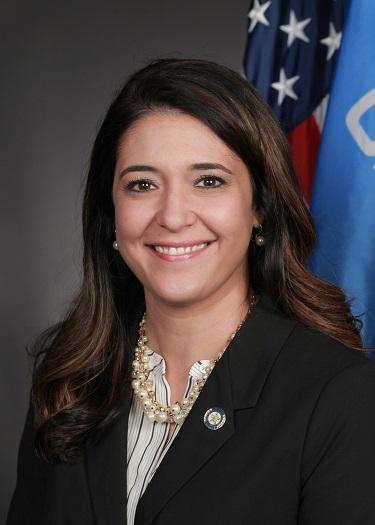Governor signs bill requiring informed consent for nursing home patients for prescription of antipsychotic drugs
 Sen. Stephanie Bice
Sen. Stephanie Bice
A bill requiring informed consent for nursing home patients and their families regarding the use of powerful antipsychotic drugs has been signed into law. State Sen. Stephanie Bice, R-Oklahoma City, is the principal author of Senate Bill 142. Rep. Tammy West, R-Bethany, is the principal House author. The measure deals with the overuse of powerful antipsychotic drugs for nursing home patients who have not received a psychiatric diagnosis, nor has informed consent been given by the patients or their representatives.
Bice said according to research from the Centers of Medicaid and Medicare Services, Oklahoma is the worst state in the nation when it comes to the use of antipsychotic drugs for nursing home patients who have received no psychiatric diagnosis to warrant the use of such medications. Bice said it happens to one in five nursing home residents in Oklahoma.
“It’s pretty shocking, really. Nursing homes are basically prescribing these drugs as a pharmaceutical restraint to make it easier to handle the patients, but it’s extremely dangerous. It can result in illness, injuries, cognitive decline and even death,” Bice said. “Until this legislation, there’s been nothing that requires the patient, their family or other caregivers to be informed about the use of these powerful drugs. Senate Bill 142 is about requiring informed consent and a proper diagnosis.”
Under the provisions of SB 142, a nursing home patient would have to be examined by the prescribing clinician and diagnosed with a psychiatric condition before an antipsychotic drug could be given. Further, the clinician would have to confirm with the nursing facility that they had received informed consent from the resident or their representative.
Bice said elderly patients who are inappropriately prescribed this medication are at risk for over-sedation falls, accelerated cognitive decline and increased risk of stroke and pneumonia. It also can mask other conditions or illnesses like undiagnosed pain, dehydration, urinary tract infections or serious cognitive issues, leaving them untreated.
Rep. Tammy West, R-Oklahoma City, said she had experienced a similar situation with her own grandmother.
“When I found out Oklahoma was number one in the nation, I knew this had to be looked into,” West said. “Passing this bill was the first step towards protecting our elderly from being overly medicated in this manner.”
SB 142 takes effect on November 1, 2019.
 Oklahoma Senate
Oklahoma Senate

